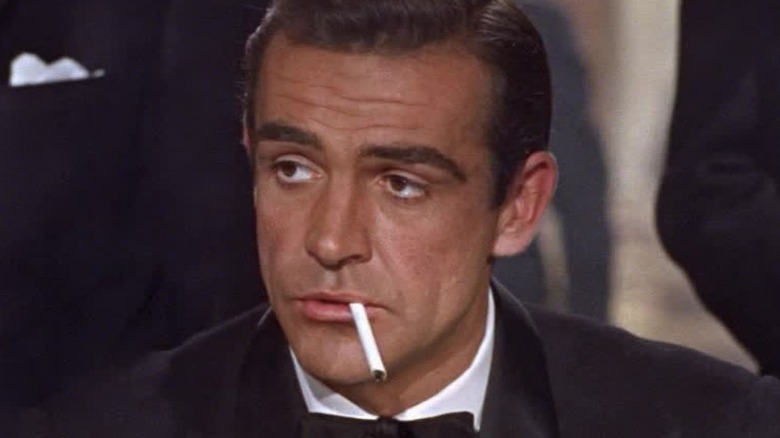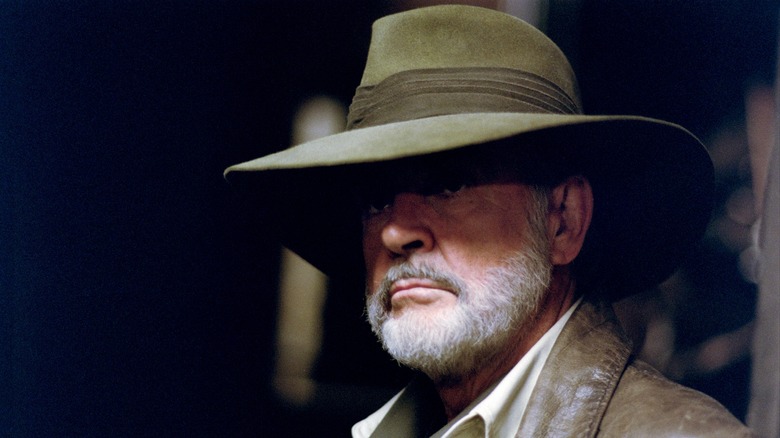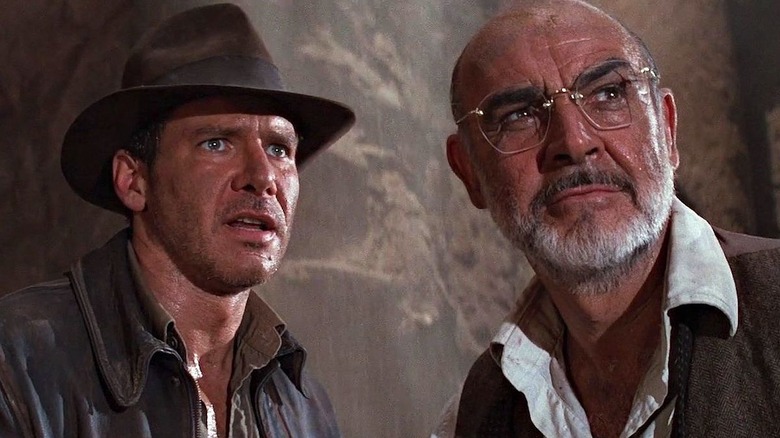The Real Reason Sean Connery Retired From Acting
Sean Connery, the Scottish-born actor whose portrayal of Ian Fleming's classic spy hero, James Bond, made both character and actor iconic has passed away at the age of 90.
To reduce Connery's career down to a single role is impossible. Connery isn't just the face many conjure in their minds when they think of 007, he's Marko Ramius in The Hunt for Red October, he's Ramírez in the Highlander franchise, and he's Indiana Jones' (Harrison Ford) dad! Simply put: The very institution of action-adventure movies would be unrecognizable without Connery's towering talent.
Despite all that, though, Connery spent nearly two decades in retirement. His final, on-screen appearance (playing someone other than himself) was as Allan Quatermain in the film adaptation of Alan Moore's legendary comic series The League of Extraordinary Gentlemen, which came out back in 2003. For an actor whose TV and film credits date back to 1954, that means he essentially stepped away from a successful career spanning five decades — that's not a small decision. So, what were the reasons that pulled Connery out of the limelight?
The film that soured Connery on acting
To an extent, personal health played a part in Connery's decision to move on from acting. In 2006, Connery underwent surgery for a kidney tumor which required that he be opened in five places. And while reports suggest that the tumor itself was benign, it was enough of an ordeal for the actor to cite it when discussing his retirement. At the 2006 American Film Institute ceremony where he received a lifetime achievement award, Connery said "I have retired for good," mentioning his surgery by adding, "It's been a bit rough since Christmas, but I'm perfectly okay and I feel well."
If Connery felt well, then clearly there's a larger story to why he embraced retirement. The other likely final reason for ending his career was Connery's frustration while playing Allan Quatermain in The League of Extraordinary Gentlemen. The 2003 film was a flop by Hollywood standards, even though it eventually earned $179 million against its $78 million budget. Given both Connery's involvement and the love for Alan Moore's comics, there was an expectation for success that simply was not achieved by this tedious adaptation.
Connery was unhappy with the project. Connery went on record with The Hollywood Reporter saying he was "heavily involved in editing and trying to salvage" the film, and even went so far as to say that Extraordinary Gentlemen director Stephen Norrington should be "locked up for insanity."
The role that almost got Connery to return
There was one role which very nearly brought Connery out of retirement: Henry Jones Sr. a.k.a. the father of the one and only Indiana Jones. It had been some five years since The League of Extraordinary Gentlemen had soured Connery on filmmaking when Steven Spielberg came tapping on the actor's door.
"If anything could have pulled me out of retirement, it would have been an Indiana Jones film," Connery explained on his official website. "But in the end, retirement is just too much fun."
We don't know for certain what it was that led Connery to turn down the role, but rumors did surface that he and Spielberg disagreed over the extent of the involvement Jones Sr. would have in the film. Supposedly, Connery wanted more screen time, but an agreement could not be reached. All things considered, Connery's absence may have been a blessing in disguise, since Indiana Jones and the Kingdom of the Crystal Skull did not charm audiences anywhere near as much as previous installments in the franchise did.
Despite his early retirement, Connery's presence looms large in the public consciousness whether you remember him as a spy, a submarine captain, or an archaeologist. Much like Ramírez in Highlander, we'll always see Connery as nothing short of an immortal.


